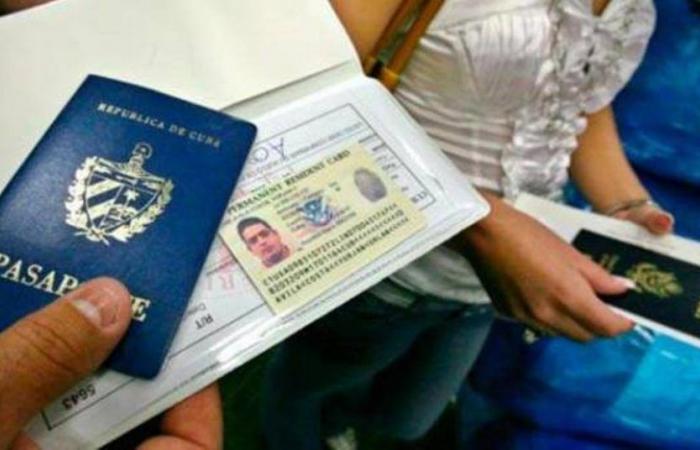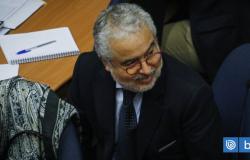Madrid/Cubans abroad will retain their rights to residence and will not lose their property regardless of the time they have been outside the country, according to the new Migration Law, whose preliminary draft was published this Monday on the Parliament’s website along with that of the Law of Foreigner. The rule also leaves another notable novelty and that is the possibility of renouncing Cuban nationality and entering the Island with a passport that certifies a new citizenship.
Currently, Cubans who leave the country and do not return within 24 months lose their resident status and, with it, many inherent rights, from medical care to property. However, they were obliged to enter the Island with their Cuban passport, one of the most expensive in the world, at a cost of 180 dollars.
With the new norm, the category of effective immigration residence is created, “a condition achieved by Cuban citizens and resident foreigners, when they remain (…) most of their time in the national territory, or through a combination of a period of permanence and other material evidence that demonstrates roots in the country.” Those who obtain this category hold the rights that the Cuban Constitution reserves for nationals.
As for residents, they are divided into two: residents in the national territory (who can be temporary or permanent) and residents abroad.
As for residents, they are divided into two: residents in the national territory (who can be temporary or permanent) and residents abroad. In the latter are those who live outside Cuba, those who before this law were considered emigrants – and will be able to request their new status – and investors and “business people” who participate in the Cuban economic model.
Article 56.1 addresses the situation of those who renounce Cuban citizenship, to whom the immigration law would apply once said renunciation is recognized. The text details that these people “cannot identify themselves in Cuba as Cuban citizens, and for the purposes of entry and exit to the country they are subject to the presentation of the corresponding foreign passport, visa requirement and the corresponding travel documents.” In the event that they have more than one citizenship “they identify themselves and leave the country with the same passport that they used when entering the national territory.”
The norm also regulates the conditions of entry and exit, as well as the limitations, among which are still reasons of security and national interest and some other reasons of a discretionary nature, as well as other common grounds in international laws that include criminal reasons. .
In the case of entering the country, the fact of having a criminal record for terrorism and other internationally prosecuted crimes also appears as a limitation, a section that may be a nod to Washington, which keeps the Island on the list of States sponsoring terrorism precisely. for the protection it has given to some people involved in this type of serious crimes.
The norm also regulates the conditions of entry and exit, as well as the limitations, among which are still the reasons of security and national interest.
The 65-page rule also establishes legal frameworks for crimes linked to migrant smuggling and human trafficking, as well as the sanctions regime for non-compliance. According to the press release from the National Assembly, to which the draft arrives after years of study, the publication is made with “the objective of promoting citizen participation in this legislative process and contributing to the legal culture of the population.” To this end, several emails have been enabled to which citizens can send their impressions.
However, the norm would already be in an almost final version, according to its own preamble, which emphasizes that in March it was presented to the Council of Ministers “and some other entities” that made questions and observations already resolved “so there are no discrepancies regarding the project”, from which it is inferred that the Assembly will make few or no modifications.
The Migration Law – “aimed at achieving a regular, orderly and safe flow” – will repeal the one currently in force, from 1970, as well as subsequent decrees that modified aspects such as travel regulations, among the most important. The change will radically break with the model in force until now, which entailed the loss of a huge amount of rights, in addition to the properties, which Cubans were quick to bequeath to their relatives to manage.
The regime has been trying for several years to approach Cubans residing abroad in order to get them to invest in Cuba.
The regime has been trying for several years to approach Cubans living abroad in order to get them to invest in Cuba, something that the law prevented emigrants in the United States until now, although sometimes it ended up being done on the margins. With this modification, and thanks to the maintenance of Cuban nationality, this situation ends in a context of emergency for the Island.
However, in the United States experts warn of the balance to which this situation could lead. “If a person is asking for asylum in the United States and suddenly they are receiving an inheritance or intend to return, this can definitely be alarming for the North American authorities because it means that there was fraud in that asylum,” said immigration lawyer Gladys last night. Carrederguas to the Telemundo Miami channel.






